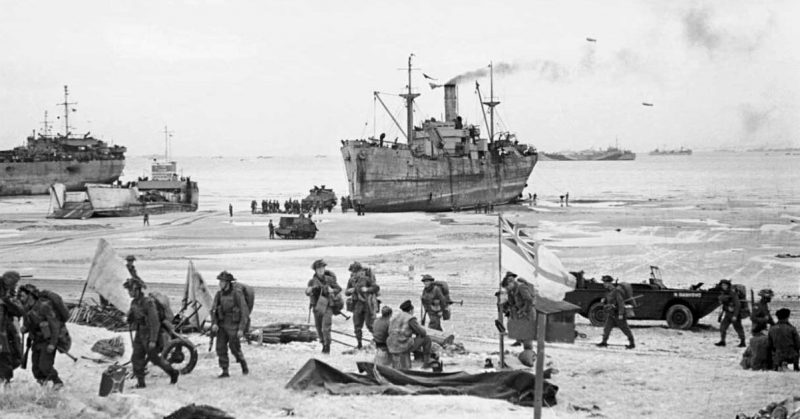Joseph Dappal parachuted into Sainte-Mere-Eglise in northwestern France hours before the history’s largest seaborne invasion. All he could see in the darkness was the light of gunfire from the Germans as he drifted to the ground.
Dappal, 91, from Youngstown, Ohio, feels lucky. He evaded the German gunfire, but many of his peers in the 82nd Airborne Division weren’t as fortunate.
As soon as they hit the ground, Dappal and his fellow soldiers began assembling 75-millimeter pack howitzers and started returning fire on the enemy. He hit an enemy target with his first shot but missed on his others.
For the next several months, Dappal and his division were under nearly constant fire as they moved across Europe.
They lay low in Sainte-Marie-Eglise for 38 days while they waited for the troops that landed on the beaches of Normandy. They were attacked almost daily during this time.
“As young as I was it didn’t bother me,” he said. “Being a young guy it didn’t register with me. If I was older, it would have bothered me.”
When the other troops arrived in July 1944, Dappal’s unit received a temporary reprieve and was sent to England. They would not be there for long.
After a few weeks, Dappal and his fellow soldiers jumped a second time. This time, they were sent into Holland. After crossing through Belgium into France, his unit had to retreat for the only time during the war after an attack by the Germans.
“You could see the blasts come in and all the fire,” said Dappal. “That was devastating to retreat. It was pretty scary. We were fighting our way all through France.”
Dappal’s arm was pierced with a piece of shrapnel. Medics bandaged it, and they continued pushing forward.
At the end of 1944, Dappal’s unit joined the Battle of the Bulge. “The Bulge was terrible,” he said, frowning. “It was so cold. Your feet got cold once in a while. Some of the guys got frostbite. I never had an experience like that.”
They continued to push toward Berlin throughout the winter of World War II. They reached it as the Nazi government fell apart.
“It was pretty much bombed out,” Dappal said about Berlin at the end of the war. “I was happy it was over, of course,” he said.
Dappal and his fellow soldiers took part in the occupation of Berlin. Dappal and some of the troops sheltered in Adolf Hitler’s home, which he called opulent.
Sgt. Dappal was offered the opportunity to stay in the Army and become a corporal in three years. He decided instead to be discharged in 1945. Before being discharged, he was offered a chance to attend a military parade in New York City to celebrate the end of the war. He wouldn’t go because he wanted to get home, Home Town Life reported.
Back in Youngstown, his high school sweetheart, Julie, was waiting for him. Every day he was away, he wrote her letters to let her know that he was still safe.
They moved from Youngstown to Massachusetts soon after the war and had lived in Northborough for several decades. They celebrated their 66th wedding anniversary this past April.
